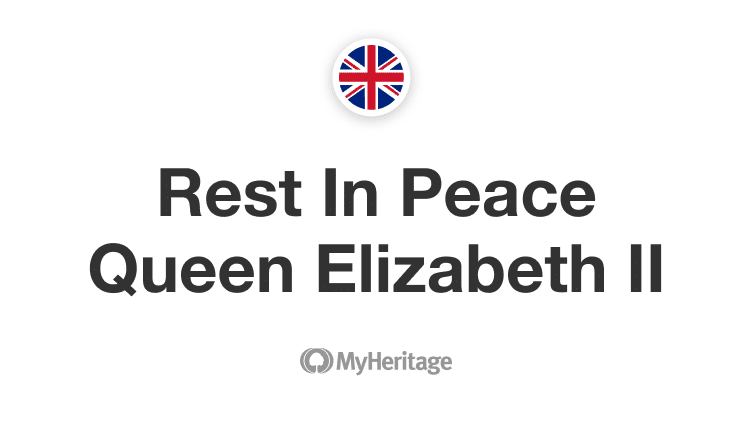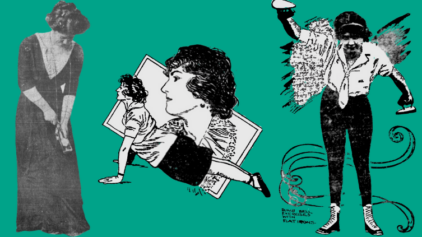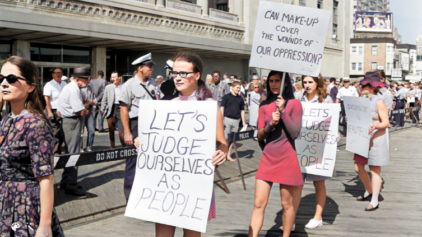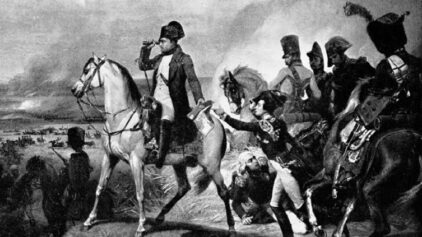

It is with deep sadness that we mourn the passing of Queen Elizabeth II.
No modern monarch was more well-known and beloved than the Queen. At 96 years of age, she was not only the longest-lived British monarch, she was also the oldest living monarch in the world. She was the first British monarch in history to celebrate a Sapphire Jubilee — 65 years on the throne — and then a Platinum Jubilee marking her 70th year just this past summer.
Queen Elizabeth had to navigate an incredible amount of political upheaval and social change during the course of her reign. Some of the highlights included the rise of women’s and civil rights, the fall of imperialism, and increased secularization. MP Tobias Ellwood once described Elizabeth as “a reassuring and enduring source of stability, security, and inspiration; a permanent anchor in a fast-moving world.” And she did it all while growing a thriving family of her own: 4 children, 8 grandchildren, and 12 great-grandchildren!
Here are just a few ways the world has changed since Elizabeth II first ascended the throne.
The collapse of the British Empire
No fewer than 46 former British colonies gained independence during Elizabeth’s reign, most within the first 30 years. The decline of imperialism was set in motion before Elizabeth’s time, but it was her Great Britain that let go of most of the colonies. She remained monarch of the Commonwealth realms, including Canada, Australia, New Zealand, and 12 others. The most recent state to leave the Commonwealth was Barbados, which became an independent republic on November 30, 2021.
War and peace in Northern Ireland
The 1998 Good Friday Agreement, or Belfast Agreement, ended almost 4 decades of hostilities over the political situation in Northern Ireland. The conflict, known as “the Troubles,” began during the second decade of Elizabeth’s reign. It claimed the lives of thousands of Irish and British citizens.
The fall of the Soviet Union
When Elizabeth became queen, Joseph Stalin was still in power, but he died the following year. Relations between the U.S.S.R. and the U.K. were tense, but warmed after Mikhail Gorbachev came to power in 1985. In 1989, Gorbachev invited Elizabeth to visit Moscow, and she accepted. Gorbachev himself passed away just last week at the age of 91.
The European Union and Brexit
Great Britain joined the European Economic Community — precursor to the European Union — in 1973. The country’s relationship with the pan-European community was always tenuous, and in 2016, the population voted to leave the European Union. The withdrawal was completed at the end of January 2020 after a great deal of political chaos.
The digital revolution
Queen Elizabeth’s coronation was the first ever to be broadcasted on television, allowing millions of viewers to participate in the monumental event. The Queen was also one of the first heads of state to send an email, using ARPANET, the precursor to the Internet, in 1976. Today, the Royal Family is on social media platforms such as Instagram and Twitter. This past summer, during the Platinum Jubilee celebrations, the Queen surprised and delighted us all with an adorable video clip starring herself and the iconic fictional character Paddington Bear — to whom she “revealed” that she carries a marmalade sandwich in her signature purse! The clip went viral on social media.
Second-wave feminism and the civil rights movement
The Queen did not grant personal interviews and stays silent on most political and social matters, so we can’t know if she would have described herself as a feminist — but she was certainly a feminist icon. Before she was crowned queen, she insisted on contributing to the war efforts by joining the Women’s Auxiliary Territorial Service in 1945, as a mechanic and truck driver. This makes her the only female member of the royal family to have served in the army, and, until her passing, the only living head of state to have served in World War II. She has also been a member of the Women’s Institute since 1943.
The COVID-19 pandemic
We’ve all been around for this one, of course, but so was the Queen. COVID-19 was particularly dangerous for people of advanced age, so the virus sparked particular fears for the Queen’s health. But she avoided the virus until finally testing positive for it in February 2022, and fortunately, only experienced mild symptoms. Not only did she make it through the pandemic unharmed, she gave comfort and inspiration to people all over the world using the technological means available to her. Her special address during April 2020 was particularly well-received as a source of comfort during an incredibly scary and uncertain time, and her simple yet powerful message of hope — “We will meet again” — was widely quoted in the international press.
Losing the love of her life
After almost 74 years at her side, Prince Philip, Queen Elizabeth’s husband, passed away last year at the ripe old age of 99. Their love story was a thing of fairy tales: the two fell in love while corresponding during World War II, and they got secretly engaged against their parents’ wishes. Philip gave up a lot to become Elizabeth’s royal consort, including his titles and place in the line of succession to the Greek throne. He took the last name Mountbatten, but his children took their mother’s surname (Windsor) to carry the royal name forward. But he supported Elizabeth throughout their long marriage. Queen Elizabeth described him as “her strength and stay all these years” and said that she, her whole family, and many countries owe him “a debt greater than he would ever claim, or we shall ever know.”
The world’s favorite queen
It takes a great deal of flexibility and strength of character to remain an influential leader for such a lengthy and tumultuous period of time. Queen Elizabeth II saw it all, and managed to adapt and keep her position relevant through all the dramatic changes that took place during the past 70 years. Even at 96, she was a source of strength and inspiration not only for the United Kingdom and the Commonwealth under her rule, but for people all over the world. We have no doubt that she will be greatly missed. Our deepest condolences go out to the royal family, to the U.K. and the Commonwealth, and to the millions of people across the globe whose lives were touched by this truly one-of-a-kind queen.









